Suddenly, the interior lights of a parked car flared on, and Mr. Kural found himself staring straight into the pale eyes of his pursuers.
Then, the motor started up, and the car began to move slowly toward him.
“That was perhaps the worst moment of all,” Mr. Kural, 29, said in an interview in Istanbul this week, recounting a month of such encounters that the police and prosecutors in Istanbul are still studying.
Neither the authorities nor, indeed, Mr. Kural would have taken these incidents so seriously, were it not that six other Caucasian activists have been gunned down in the streets of Istanbul over the past four years.
In the most recent attack, three Chechen militants were shot and killed last September with silencer-equipped guns as they were getting into a car outside their home in Istanbul. Three other Chechen activists were killed in similar fashion in separate attacks in September and December 2008 and in February 2009.
None of the victims were Circassian; all were living in Turkey as refugees from the Chechen war, in which they had fought for independence from Russia. For that reason, analysts suspect that the perpetrators, who have not been apprehended, are linked to Moscow.
“It is quite open, quite clear who did it,” Guner Ozkan, an expert on security issues in the Caucasus with the International Strategic Research Organization in Ankara, said this week. “Russia does that,” he added, pointing to similar killings of Chechen militants in Vienna, Dubai and other places.
Oliver Bullough, the author of “Let Our Fame Be Great,” a recent book about the Russian conquest of the Caucasus in the 19th century, agreed. “The balance of probability is overwhelming that at least some of these were committed by Russian agents or people sent by Russia,” Mr. Bullough said by telephone from England this week.
The Russian Embassy in Ankara did not reply to requests for comment by telephone and e-mail. The Russian authorities have offered no comments on the killings, except for a statement by Russian investigators last year, quoted by Interfax, saying that two of the three men killed in the most recent Istanbul shooting were suspects in the bombing of Domodedovo Airport, which serves Moscow, in January 2011. Previously, the office of the Chechen president, Ramzan A. Kadyrov, a Moscow ally, has denied his involvement in the killings of any of the Chechens.
The case of Mr. Kural, the Circassian activist, is different from the others: Not only is he not Chechen, but also he is a Turkish citizen.
Mr. Kural’s first name comes from the Caucasian region, Kuban, from which his forebears hailed. He is one of several million Turkish descendants of the Adyghe and Ubykh peoples, commonly known as Circassians, who were forcibly evicted from their homeland in the Caucasus by Russian troops in 1864.
About a million Circassians, 90 percent of their total number, were expelled from their lands on the eastern shores of the Black Sea at the time, according to Mr. Bullough’s research, and 300,000 to 400,000 perished.
Today, most Circassians live in Turkey as a relatively well-integrated ethnic minority of three million to five million. Other Circassians are in Israel, Jordan and Syria as well as the United States, where there are sizable communities in New Jersey and California.
The Circassian community in Turkey has recently begun to join Kurds, Laz and other minorities in calling for recognition of its ethnic identity and protection of its language and culture. The Ubykh language became extinct with the death of its last native speaker a decade ago.
“It is partly a result of the democratization process of the past 10 or so years,” Mr. Kural said of the fledgling Circassian movement. A recent rally to commemorate the events of 1864 drew around 5,000 participants in Istanbul in May.
The jolt that galvanized Circassians in Turkey and around the world into action came when Sochi, a Russian resort town built on former Circassian lands, was named a candidate for the 2014 Winter Olympic Games in 2006. It won the Games a year later.
“We will never agree to the Olympics’ being held on soil where genocide was committed against our forebears, where their bones still lie,” said Mr. Kural, who has been deeply involved in a Circassian diaspora campaign against the Sochi Games since 2006.
Mr. Kural suspects that his role in this campaign, “No Sochi 2014,” has earned him the unwanted attentions of Russia. He has described his mysterious encounters in detail to the police and the news media.
His pursuers would routinely make eye contact with him. Whenever he found them waiting outside his home, at the university where he works as an administrator or at Circassian campaign events, they would turn on the dome light of their car.
On another occasion they were waiting outside a restaurant in a part of Istanbul that he was visiting for the first time. They also once chucked a balled-up piece of paper at him. “You will die” was written on it in Russian.
Though cautious, analysts do not rule out the possibility that Mr. Kural is indeed being stalked by Russian agents.
“Russia takes the No Sochi movement very seriously, perhaps too seriously,” Hasan Kanbolat, chairman of the Center for Middle Eastern Strategic Studies in Ankara, said by telephone this week. “But harassing an activist is not behavior that can be condoned.”
Mr. Bullough, the author, said Russia had been “stunned” and “blindsided” by the Circassian protests against the Sochi Games.
“They thought Chechnya was going to be the problem, and suddenly this happens,” he said.
Mr. Bullough said Mr. Kural’s account reminded him of his own experiences being followed by Russian agents in the Caucasus. “They do make sure you know, they are very demonstrative about it,” he said. “So this does ring a bell.”
Mr. Ozkan, the Caucasus expert, said that although Russia was more focused on the Chechens, by stalking Mr. Kural “they might be sending a message” to the Circassians “to stay away” from the Olympic issue.
The Turkish government has said little about the subject. A Foreign Ministry spokesman said this week that the police were looking into the threats against Mr. Kural, while the security authorities were still investigating the killings of the Chechens. On July 12 Mr. Kural was placed under police protection and provided with a bodyguard.
Mr. Ozkan said he suspected Ankara was trying to protect its blossoming relationship with Russia.
“Turkey is not willing to go into identifying who killed those Chechens; even if they know, they will not come out and say it,” he said. “Relations between Turkey and Russia are flourishing, especially in economic terms. Both sides are keeping this low-level.”
Mr. Kural fears that Turkey’s silence on the Chechen killings may have encouraged Russia to come after him. “They know now that they can act easily and with impunity in Turkey,” he said.
But all experts interviewed agreed that the assassination of a Turkish citizen is of another order and highly unlikely.
“The fact that he is a Turkish citizen changes the color of things” compared to the Chechens’ killings, Mr. Kanbolat of the Center for Middle Eastern Strategic Studies said. “We hope they wouldn’t risk that.”
The police in Istanbul, who have been investigating the threats for several weeks, summoned Mr. Kural to another meeting on Monday. They said that his request for police protection was still being weighed by the provincial governor’s office.
Mr. Ozkan said he did not expect the matter to end there. “Will we see more such attacks? Probably yes,” he said. “Because the violence in the Caucasus is ongoing.”



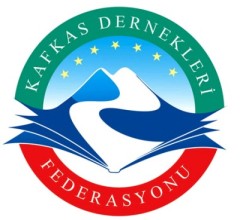
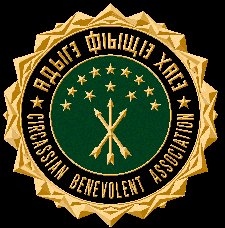

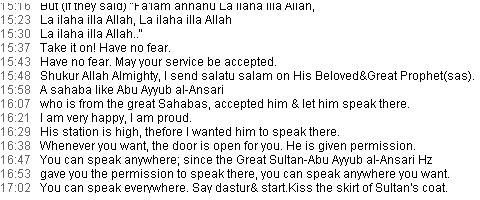
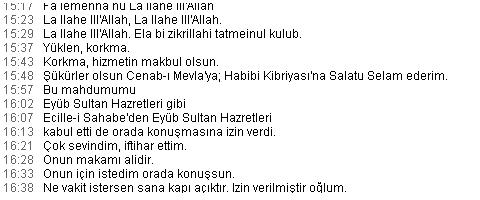







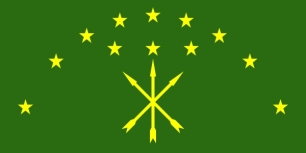











You must be logged in to post a comment.